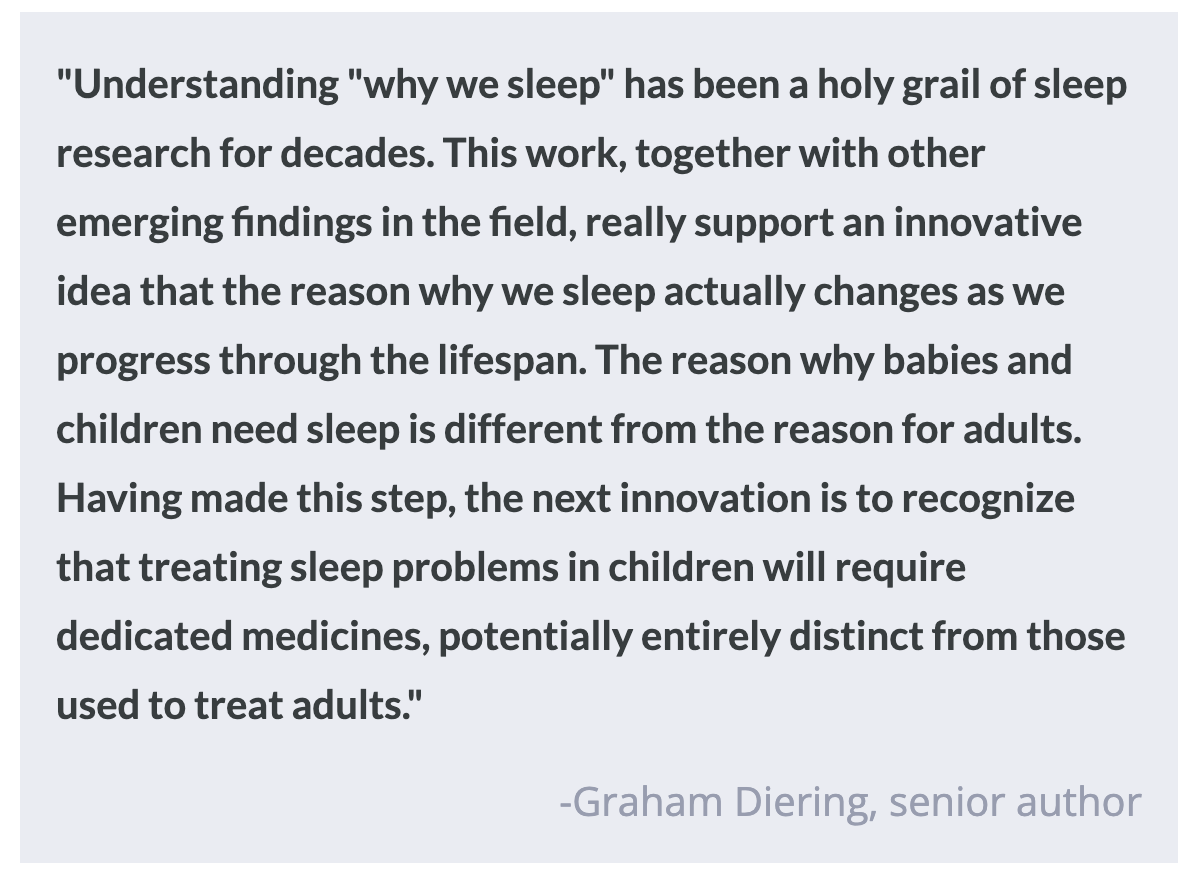Sleep Loss Affects Developing Synapses in the Brain
Post by Baldomero B. Ramirez Cantu
The takeaway
Sleep is essential for brain health, especially during development. This study found that sleep deprivation disrupts key processes in brain maturation, with juvenile mice showing significantly higher vulnerability than adults.
What's the science?
Sleep is crucial for lifelong cognitive health, particularly during brain development. Synapses in the brain undergo significant transformations during youth, shifting from high synapse formation in juveniles to stability in adulthood. Neurodevelopmental conditions like autism spectrum disorder (ASD) often show early-life sleep disturbances, making sleep loss during sensitive developmental periods an important focus. This week in PNAS, Gay et al. investigated the molecular and behavioral impact of sleep deprivation (SD) across developmental stages in mice, analyzing differences in how juvenile, adolescent, and adult brains respond to sleep loss.
How did they do it?
The study involved juvenile, adolescent, and adult mice, which underwent a 4 or 6 hour sleep deprivation session at the start of the light phase. Researchers assessed memory using a novel object recognition (NOR) task, where only juveniles showed cognitive impairment after SD, indicating that adults were more resilient to the deprivation.
For molecular analysis, the team collected forebrain synaptic proteins from each age group under sleep, wake, and SD conditions, using mass spectrometry to quantify thousands of proteins and phosphoproteins. Statistical analysis revealed that SD in juveniles led to broad changes in synapse-related proteins involved in growth and plasticity, whereas adolescents and adults had fewer alterations. Further analysis highlighted that the SD-sensitive proteins in juveniles strongly overlapped with autism risk genes, suggesting that early sleep disruption may interact with genetic vulnerabilities during brain development.
What did they find?
Juvenile mice exposed to SD showed cognitive impairments in memory tasks, whereas adults remained largely unaffected. At the synaptic level, SD was associated with protein and phosphorylation changes in juvenile mice, including upregulation of proteins linked to synaptogenesis and neural activity. These responses overlapped with ASD risk genes, suggesting a potential interaction between developmental sleep loss and ASD susceptibility.
What's the impact?
The findings underscore the role of sleep in neural development and the potential risks posed by sleep loss in youth, with implications for neurodevelopmental disorders like ASD. These insights could guide public health recommendations for pediatric sleep hygiene and inform approaches to ASD prevention and treatment by emphasizing sleep as a crucial factor in brain health.


